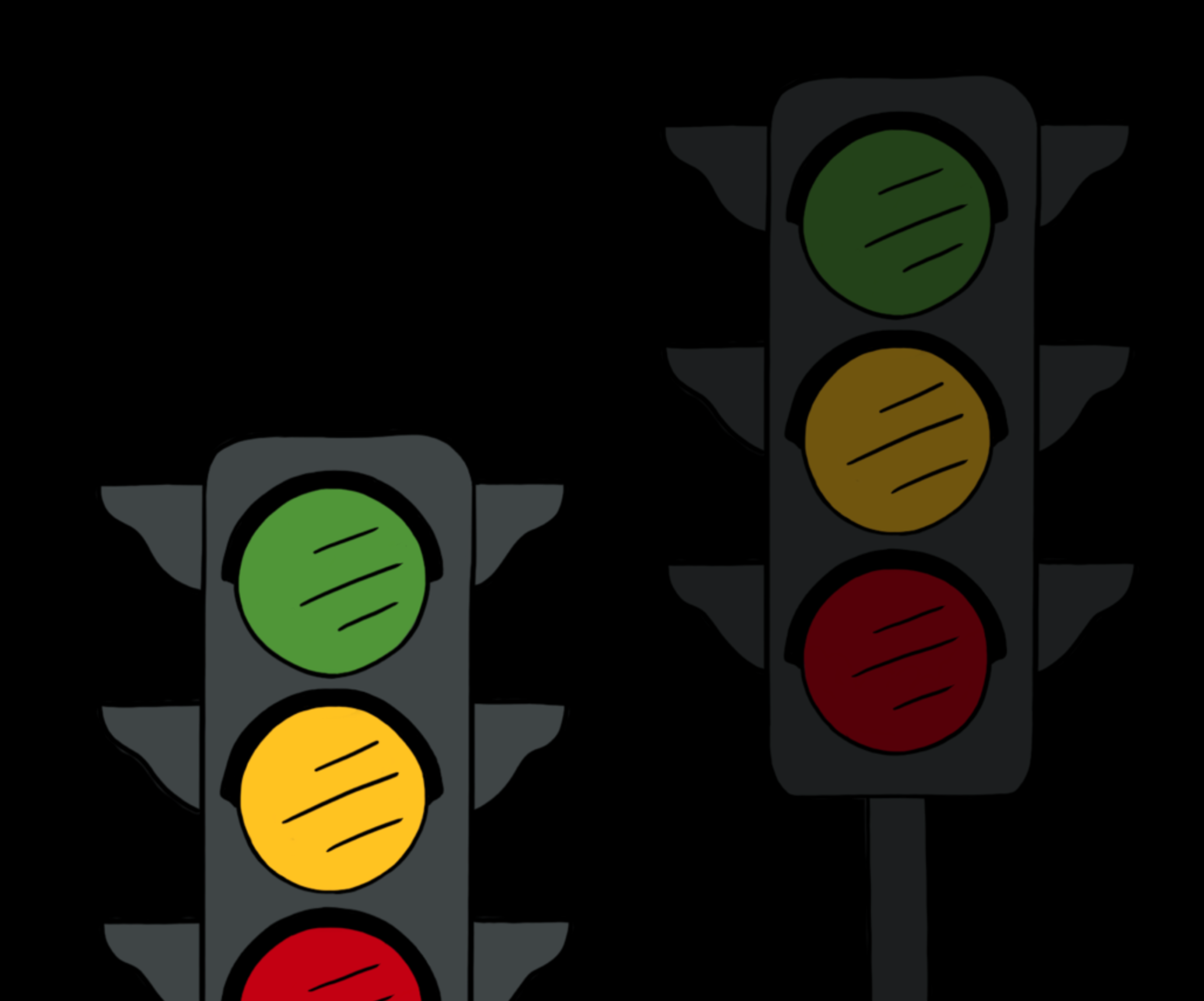
Sleep
This lesson will talk about our sleep — why it's important, how it affects our mental health, and what we can do to improve it.
Why is sleep important
It might seem obvious, but sleep is really important for both our physical and mental health. Sleep is actually considered to be an active brain state, where a whole complex sequence of really important metabolic functions happen.
Regular, quality sleep improves our memory and learning, our creativity and problem-solving, our physical health, our emotional regulation, and even improves symptoms of mental health disorders.
And in contrast, inadequate sleep has been shown to negatively affect our attention and concentration, impair performance, reduce our energy levels, and can impair our emotional regulation —causing us to be more emotionally reactive or irrational.
Sleep and emotional regulation
In module 2 I talk about the brain, and how someone is in the green zone when they have access to both their “emotional” brain (their brainstem and limbic system) — as well as full access to their “thinking” brain (their cortex).
Particularly important here is the relationship between the amygala, our ‘alarm’ centre, and our prefrontal cortex. The prefrontal cortex is what we use to regulate our emotions and impulses, and when we have access to this, even if the amygdala sends a ‘danger’ signal, our thinking brain is able to pause and calmly observe what is going on before reacting — we’re able to notice our emotions, and stay regulated.
Many studies have now shown that after a full night of sleep, the prefrontal cortex becomes strongly coupled to the amygdala — meaning that we have more balance between our thinking brain and our emotional brain, and it is easier for us to stay in that regulated state of the green zone. And without sleep this coupling is weakened, and without the thinking brain there to keep us regulated our emotional brain is more easily able to take charge and become more reactive.
We all already know this to be true — I’m sure we’ve all experienced days where we haven’t gotten enough sleep and we suddenly became more moody or irritable, or overwhelmed by the little things. It’s not that bad sleep automatically makes us moody or down — it’s that inadequate sleep can cause our window of tolerance to shrink.

Overnight therapy: dreaming to process memories
Studies have shown that the REM-sleep state, where we experience dreaming, is actually an active brain state where we process and integrate memory. During this stage of sleep, our brain is free of the stress-chemical noradrenaline, which means that we are able to reprocess upsetting emotional experiences and memories that occurred during the day, in this safe and calm dream state.
During REM dreaming, our brain is sleeping to both remember and integrate core details of valuable experiences, and file them away into our long-term memory, whilst also sleeping to forget and release the painful emotions or charge surrounding the memory. Experts call this stage of sleeping “overnight therapy”, where the act of dreaming helps to resolve our emotional past, recalibrate our system, and reset our ability to navigate emotions.
I have often found both for my clients and for myself as a client in therapy, that after a session that perhaps worked through a lot of trauma or painful emotional experiences, we often will want to have a nap or a big night sleep — it’s the brain’s natural way of integrating and processing the experience!

PTSD, nightmares, and insomnia
Something that’s very interesting about this mechanism of REM-sleep, is that it’s given us some insight into what might be happening for people with PTSD who have frequent nightmares.
As we learnt in module 1, traumatic stress can cause our nervous system to stay in a chronic danger response. What this means for our sleep then, is that the stress-chemical noradrenaline can sometimes stay at such a high a level that it actually blocks normal REM-sleep dreaming.
So when the brain goes into REM-sleep and attempts to integrate the traumatic memory, the noradrenaline keeps the brain in a state of stress rather than a state of safety, and so the emotional charge isn’t able to be taken away from the memory. So instead of being able to process and integrate the memory during dreaming, we have a nightmare.
This explains why some people have repetitive nightmares, because it’s the brain repeating the attempt if it doesn’t work the first time. Nightmares are actually the brain trying to help you to integrate painful experiences, and the process is being blocked.
In a similar vein, the primary cause of insomnia is often considered to be emotional distress, which as we know can cause us to be stuck down the ladder in the yellow or red zones, where we can stay in patterns of stress, worry, and rumination.
While both nightmares and insomnia can be scary or disheartening, understanding how they work can give us hope — because there are solutions.
Go gently
So, knowing what we now know about the interplay between stress, trauma, and sleep, we can start to bring in solutions from the therapy world to help gently support us:
- This is where using the tools from the ‘Cope’ course can help us to improve our sleep by reducing our stress response, which will in turn lower the stress-chemicals in the brain that can affect our ability to sleep well.
- If you are struggling with frequent nightmares, seeing a trauma therapist might be beneficial. This way you can process subconscious memories while awake, with the safe guidance of a trained expert, which over time can help stop the REM-sleep loop that happens at night.
- Also, while I am in no way a medical expert and do not give any recommendations, for people dealing with PTSD and frequent nightmares there are also possible medications that a physician can prescribe that can suppress noradrenaline in the brain, which have been found to relieve nightmares.
- And most importantly, remember that sleep doesn’t need to be something extra you have to stress about. You are doing the best that you can, and this page is simply about offering tools to support your sleep, should you want or need them.

How to improve sleep
I am not a sleep expert, so instead I’m gonna leave the rest to the experts. Below is a list of some basic sleep hygiene steps you can take to improve your sleep. These come direct from the resources below, so if you want to go further to improve your sleep, I highly recommend checking them out.
Basic sleep hygiene:
- Establish a regular wake-up time and bed-time, and stick to this sleep schedule (yes, even on weekends!)
- Go to sleep when you first start to feel sleepy
- View sunlight by going outside within 30-60 minutes of waking, for at least ten minutes
- Avoid caffeine within 8-10 hours of bedtime
- Remove screens from the bedroom and avoid viewing bright lights in the evening
- Reduce alcohol intake
- Keep the room you sleep in cool and dark
- Avoid or limit daytime napping
- Take a hot bath or shower before bed
- Leave time to wind-down before bed
- Don’t lie in bed awake for a significant time period, instead try a NSDR/Yoga Nidra meditation, or get out of bed and do something quiet and relaxing until the urge to sleep returns

Resources
If you're wanting more information on how to improve your sleep, check out these resources:
What's next
The rest of this introduction section will continue to provide resources on how we can improve our mental health with other lifestyle factors.
This is all optional of course, but the resources are there if you want them.

